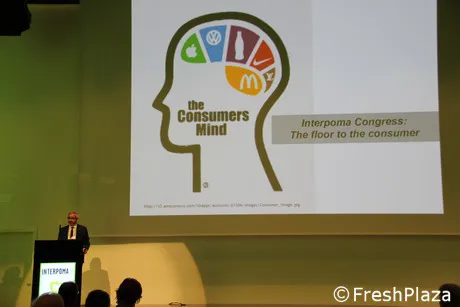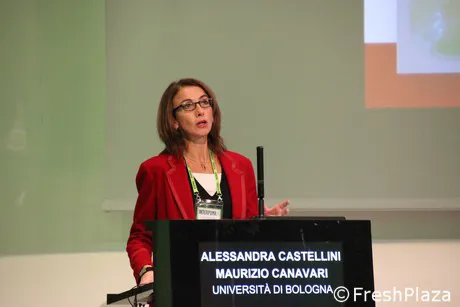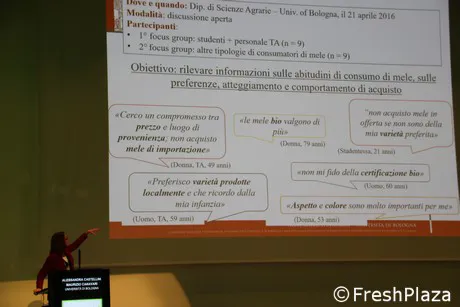
A moment during the second day of the "La Mela nel Mondo" convention at Interpoma 2016.
Consumers have specific expectations and behaviours towards the product they are buying, they perceive it in a certain way. These elements are determined by previous purchasing experiences as well as product characteristics such as appearance, aroma, firmness and so on.
As if this wasn't complicated enough, there are also elements that are specific to apples, which are the only fruit for which variety and origin have a strong relevance.
The only certainty is that a good flavour is the first characteristic consumers look for in apples.
Making predictions about the future is even more difficult. "We have no idea what kind of consumers 6-year-olds will become. Adult consumers are quite segmented. Of course consumption today will affect their future behaviour, but we don't know in what way."

Alessandra Castellini, researcher from the University of Bologna.
As reported by researcher Alessandra Castellini, a research on apple consumers conducted by the University of Bologna based on a limited number of consumers in the Bologna area shows how consumption is evolving.
Average consumption is dropping - around 1 kg per family per week against the 1.3 of 2003. 75% if interviewees identified the fruit as a snack and 40% consumes it on-the-go at lunch or dinner. 97.7% eats apples uncooked.

A moment during the presentation of the research conducted by the University of Bologna.
A series of tests confirmed that apple consumers are willing to pay more, especially for yellow apples (Golden Delicious is the most popular variety, while the only well-known club variety is Pink Lady®) and some bi-coloured ones, while they would like to spend less for red and green varieties.
Origin also plays its part, as consumers are willing to spend more for apples from Trentino Alto Adige, which are perceived as having a higher quality, and for those form Emilia-Romagna which, in this case, must be considered as local.
The real surprise comes from organic apples, which are almost exclusively purchased by the more educated consumers. The fact that an apple is organic does not seem to be so important for consumers, which are willing to pay only 18 eurocent/kg more for it.
